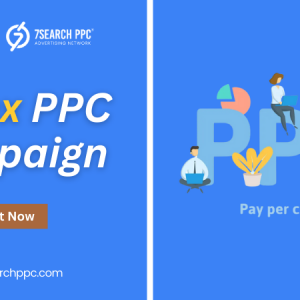In the competitive world of insurance, reaching potential clients with the right message at the right time is crucial. Insurance planning ads are a powerful tool for this purpose, but like any marketing strategy, they need to be optimized to deliver the best results. Whether you're an insurance agent, a marketing professional, or a business owner, understanding how to maximize the effectiveness of your insurance planning ads can lead to increased customer acquisition, retention, and overall growth. In this article, we'll explore ten proven strategies to ensure your insurance planning ads deliver maximum impact.

Understanding Insurance Planning Ads
What Are Insurance Planning Ads?
Insurance planning ads are targeted advertisements designed to promote insurance services ads, particularly those focused on long-term financial planning, risk management, and investment strategies. These ads aim to educate potential clients about the benefits of proper insurance planning, helping them make informed decisions about their future financial security. Whether you're promoting life insurance, health insurance, or other financial products, well-crafted insurance planning ads can help you connect with your audience in a meaningful way.
Why Are Insurance Planning Ads Important?
In today’s digital age, consumers have access to a vast array of information, and they often research their insurance options online before making a decision. Insurance planning ads provide a unique opportunity to reach these potential clients with targeted messaging that addresses their specific needs and concerns. By highlighting the importance of planning, these ads can guide individuals toward making decisions that will protect their financial future.
10 Ways to Maximize Your Insurance Planning Ads
1. Define Your Target Audience
The first step in maximizing the effectiveness of your insurance planning ads is to define your target audience clearly. Understanding who your ideal clients are—whether they are young families, retirees, or small business owners—allows you to tailor your messaging to their specific needs. Use demographic data, psychographics, and behavioral insights to create a detailed profile of your target audience. This will help you craft Insurance ads that resonate with them and address their unique insurance planning needs.
Creating Audience Personas
Developing audience personas can be a helpful exercise in this process. These personas are fictional representations of your ideal clients, complete with details like age, income, occupation, and personal goals. By visualizing your audience in this way, you can better understand what drives their decision-making process and how your insurance planning ads can meet their needs.
2. Focus on Benefits, Not Just Features
While it’s important to highlight the features of your insurance products, your ads should primarily focus on the benefits they provide. Potential clients want to know how your insurance services will improve their lives, provide peace of mind, and secure their financial future. Craft your messaging to emphasize the long-term value of your products, such as financial security, protection against unexpected events, and the ability to leave a legacy for loved ones.
Using Emotional Appeal
Insurance planning is inherently tied to emotions—concerns about family, health, and financial stability. By tapping into these emotions, your ads can create a stronger connection with your audience. Use language that conveys empathy and understanding, and highlight how your products can alleviate common worries and fears.
3. Utilize Data-Driven Targeting
Leveraging data-driven targeting is key to ensuring your ads reach the right audience at the right time. With platforms like 7Search PPC, you can use sophisticated targeting options to focus on specific demographics, behaviors, and interests. By analyzing data from previous campaigns, you can refine your targeting criteria to reach those most likely to convert. This not only increases the effectiveness of your ads but also helps you optimize your advertising budget by reducing wasteful spending.
Retargeting Strategies
Retargeting is a powerful tool that allows you to re-engage potential clients who have previously interacted with your website or ads. By reminding them of your services, you can encourage them to return and complete the decision-making process. Retargeting ads can be personalized based on the user’s previous interactions, making them more relevant and effective.
4. Craft Compelling Ad Copy
Your ad copy plays a crucial role in capturing attention and driving action. To maximize the impact of your insurance planning ads, focus on crafting clear, concise, and compelling copy. Use strong headlines that grab attention, and follow up with body text that clearly communicates the benefits of your services. Include a clear call to action (CTA) that guides potential clients toward the next step, whether it’s visiting your website, signing up for a consultation, or requesting a quote.
Testing and Optimization
To ensure your ad copy is as effective as possible, consider A/B testing different versions of your ads. This involves creating multiple variations of your ad copy and measuring their performance to see which resonates most with your audience. By continuously testing and optimizing your copy, you can improve your conversion rates and overall insurance ad campaign effectiveness.
5. Leverage Visual Elements
Visual elements are a powerful way to enhance the effectiveness of your insurance planning ads. Use high-quality images, graphics, and videos that are relevant to your message and resonate with your target audience. Visual content can help convey complex ideas quickly and effectively, making your ads more engaging and memorable.
Using Videos in Ads
Video content is particularly effective in insurance planning ads, as it allows you to tell a story and connect with your audience on a deeper level. Consider creating short videos that explain the importance of insurance planning, showcase client testimonials, or provide an overview of your services. Videos can be used across various platforms, including social media, websites, and PPC ads, to maximize your reach.
6. Optimize for Mobile Devices
With more consumers using mobile devices to browse the internet and research products, your insurance planning ads must be optimized for mobile. This means ensuring that your ads are responsive, load quickly, and are easy to navigate on smartphones and tablets. A mobile-friendly design not only improves the user experience but also increases the likelihood of conversions, as users can easily interact with your ads on the go.
Mobile-Specific Campaigns
Consider creating mobile-specific ad campaigns that are tailored to the unique behaviors of mobile users. For example, mobile ads can include click-to-call features, location-based targeting, and mobile-friendly CTAs. By focusing on the mobile experience, you can capture a larger share of the growing mobile audience.
7. Implement SEO Best Practices
Search engine optimization (SEO) isn’t just for your website—it’s also important for your ads. By incorporating relevant keywords into your ad copy, landing pages, and meta descriptions, you can improve the visibility of your insurance planning ads in search engine results. This increases the likelihood that potential clients will find your ads when they’re actively searching for insurance solutions.
Keyword Research
Conducting thorough keyword research is essential for optimizing your ads for SEO. Identify the keywords and phrases that your target audience is using when searching for insurance planning services, and incorporate them into your ad campaigns. Tools like Google Keyword Planner can help you discover high-traffic keywords that align with your business goals.
8. Monitor and Analyze Performance
To maximize the effectiveness of your insurance planning ads, it’s important to continuously monitor and analyze their performance. Use analytics tools to track key metrics such as click-through rates (CTR), conversion rates, and return on investment (ROI). By regularly reviewing these metrics, you can identify areas for improvement and make data-driven decisions to optimize your campaigns.
Adjusting Your Strategy
If you notice that certain ads or campaigns aren’t performing as expected, don’t be afraid to adjust your strategy. This could involve tweaking your ad copy, targeting different audience segments, or experimenting with new formats. The key is to stay flexible and responsive to the data, allowing you to refine your approach and achieve better results continually.
9. Use Social Proof
Social proof is a powerful tool in marketing, as it builds trust and credibility with potential clients. Including testimonials, reviews, and case studies in your insurance planning ads can help demonstrate the value of your services and reassure potential clients that they’re making the right choice. Highlight positive feedback from satisfied clients, and consider incorporating star ratings or certification logos to further enhance your ads’ credibility.
Client Testimonials
One of the most effective forms of social proof is client testimonials. By featuring real stories from clients who have benefited from your insurance planning services, you can create a compelling narrative that resonates with your audience. Consider using video testimonials or written quotes in your ads to showcase the positive impact your services have had on others.
10. Engage in Continuous Learning
The world of digital Insurance marketing is constantly evolving, and staying up-to-date with the latest trends and best practices is essential for maximizing your insurance planning ads. Invest in ongoing education for yourself and your team, whether through online courses, webinars, or industry conferences. By staying informed about new strategies, tools, and technologies, you can keep your campaigns fresh, relevant, and effective.
Experimentation and Innovation
Don’t be afraid to experiment with new ideas and approaches in your insurance advertising campaigns. Whether it’s trying out a new ad format, testing a different targeting strategy, or exploring a new platform, innovation is key to staying ahead of the competition. By embracing a mindset of continuous learning and experimentation, you can discover new ways to connect with your audience and drive better results.
Conclusion
Maximizing the effectiveness of your insurance planning ads requires a strategic approach that combines targeted messaging, compelling visuals, and data-driven insights. By defining your target audience, focusing on benefits, and utilizing advanced targeting techniques, you can create ads that resonate with potential clients and drive meaningful results. Additionally, leveraging social proof, optimizing for mobile devices, and staying updated on industry trends will further enhance your campaigns.
As the insurance landscape continues to evolve, it's crucial to remain adaptable and open to experimentation. By implementing the ten strategies outlined in this guide, you'll be well-equipped to create powerful insurance planning ads that not only capture attention but also inspire action. Whether you're aiming to increase brand awareness, generate leads, or boost conversions, these best practices will help you achieve your goals and secure a stronger future for your business.
Frequently Asked Questions (FAQs)
What is the primary goal of insurance planning ads?
Ans: The primary goal of insurance planning ads is to educate potential clients about the importance of proper insurance planning and promote specific insurance products and services to help them secure their financial future. These ads aim to build awareness, generate leads, and ultimately drive conversions by encouraging individuals to take action, such as requesting a
What are insurance planning ads?
Ans: Insurance planning ads are targeted advertisements designed to promote insurance products and services, particularly those related to long-term financial planning. These ads aim to educate potential clients about the benefits of proper insurance planning, helping them make informed decisions about their financial future.
Why are insurance planning ads important?
Ans: Insurance planning ads are important because they help raise awareness about the necessity of insurance and financial planning. They guide potential clients in understanding how different insurance products can protect their assets, provide financial security, and help them plan for unexpected events.
How can I define my target audience for insurance planning ads?
Ans: Defining your target audience involves understanding who your ideal clients are based on demographics, interests, and behaviors. Creating detailed audience personas that include factors like age, income, occupation, and financial goals can help you tailor your ads to resonate with specific groups.
References
Why Is Your Average CPC So High and how to fix it?
What Is The Best CPC Ad Network?
The Anatomy Of An Irresistible Display Ads
Retargeting Ads: Reach your Target Audience With PPC Ad campaign











